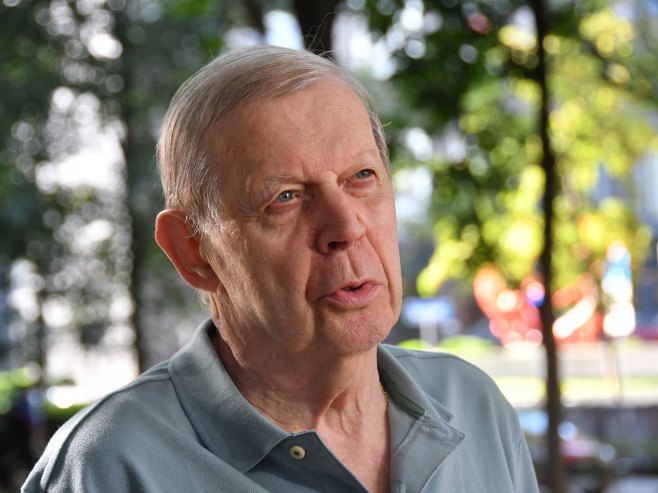Former Serb diplomat Zoran Milivojević stated that the organization of the announced referendum in Republika Srpska is completely legitimate, representing both a part of the political struggle to defend the status of Srpska and a confirmation of the will of the Serb people.
“If the referendum succeeds, and if the majority will of the Serb people is expressed, it cannot be ignored or brought into question in political terms. It cannot be disputed, it cannot be banned,” Milivojević emphasized.
He pointed out that the most important thing is for the will of the Serb people to be clear and indisputable, adding that political parties and factors in Republika Srpska bear great responsibility in this matter.
According to him, the referendum is also important because the decisions of the unelected high representative, which were translated into court rulings, have practically annulled the will of the Serb people and put into question the Dayton Peace Agreement, as well as the positions of Republika Srpska and Bosnia and Herzegovina.
“This will has been suspended by those decisions, and that is why the decision on the referendum is fully legal and legitimate as an attempt by the Serb people to express their will in a lawful and legitimate manner,” Milivojević told Srna.
He stressed that the right of the Serb people to hold a referendum is entirely in line with internal and international norms and standards, and does not contradict either the Constitution of BiH or the Dayton Agreement—on the contrary.
Milivojević underlined that the referendum must fully express the will of the Serb people, with its goal being the defense of the status of Republika Srpska and of the Serb people as a constituent nation within BiH.
Stating that there is no way, nor any legal basis, to challenge the referendum, he said it is simply the right of the Serb people to express their will, which has been denied through the measures and actions of the illegal and illegitimate high representative.
When asked how the referendum would be received in the international community, both East and West, Milivojević said that regardless of the outcome, if it is conducted fully in accordance with the norms and standards of the democratic world, it cannot be disputed, since if it is the expression of the Serb people, it must be respected.
He noted that there will likely be attempts to dispute the referendum if the results align with the interests of the Serb people and contradict the decisions of the high representative, with Western powers—especially European ones—trying to undermine its validity.
However, Milivojević stressed that in political terms the referendum will in any case produce political and politico-legal effects, serving as a basis for Republika Srpska’s actions and for the persistence of its institutions, which is crucial since they will be referring to the original Dayton framework and its guarantees, fully consistent with the Constitution of BiH.
If the referendum is understood as the defense of the interests of the Serb people as a whole, of Republika Srpska and its rights under Dayton, its institutions, and the free will of its people—and if the majority is clearly expressed—Milivojević believes it will not be possible to ignore, regardless of the positions of some Western powers.
“It will simply have to, in one way or another, produce political effects, because the functioning of BiH is already questionable under current conditions, as these court decisions, when it comes to Republika Srpska, are unenforceable. That is completely clear,” said Milivojević.
When it comes to a referendum on autonomy, Milivojević assessed that if it succeeds, it will face the greatest challenges in terms of acceptance and recognition.
He emphasized that Republika Srpska has neither the interest nor the right to abolish itself and dismantle its institutions by accepting the rulings of the BiH Appellate Court and other judicial bodies at first and second instance.
He clarified that there is no right to do so because the high representative, who is illegal and illegitimate, has taken over legislative authority in BiH—acting on behalf of the constituent peoples and entities in contradiction with Dayton and with the Constitution of BiH itself.
Source: RTRS









